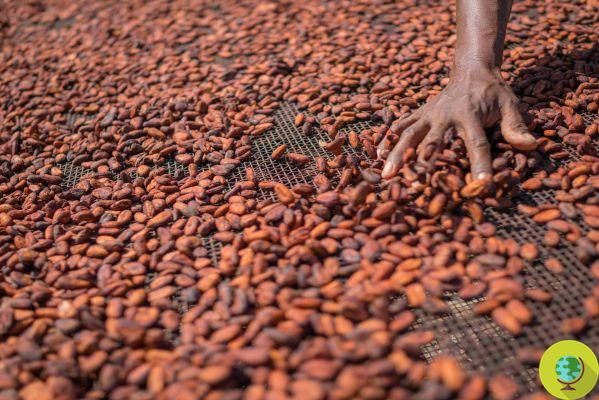
Over the years there have been various theories and positions of experts on how to prevent the appearance of food allergies in children. Now the new guidelines of the American Academy of Pediatrics try to shed some light on the subject.
Don't store avocado like this: it's dangerous
Over the years there have been different theories and positions of experts on how to succeed to prevent the appearance of food allergies in children. Now the new guidelines of the American Academy of Pediatrics try to shed some light on the subject.
Giving a child new food to try is an important step that should be lived with serenity first of all by the parents. Unfortunately, sometimes this is not the case, especially because you are afraid of possible allergies. In recent years, various scientific researches have wanted to analyze which foods to introduce and when to be able to better prevent food allergies.
Based on a detailed review of all available evidence on the subject, the American Academy of Pediatrics has released an updated guide on what works and what doesn't when it comes to preventing food allergies and other allergic conditions. The new guidelines continue “Liberalize” the introduction of what are considered highly allergenic foods such as peanuts, fish and milk.
From the scientific evidence, in fact, there seems to be no convincing evidence that delaying the introduction of certain foods can help prevent food allergies. Furthermore, there is strong evidence that a targeted and early introduction of peanuts at the start of weaning can prevent the development of an allergy to these fruits in high-risk children (i.e. those who have a close relative who suffers from this allergy). .
The theory behind this is as follows: the gastrointestinal tract hosts a unique set of immune system cells and when these cells receive a taste of the allergenic proteins of different foods they learn to tolerate them.
Dr. David Stukus, pediatric allergist and associate professor of pediatrics in the Division of Allergy and Immunology at Nationwide Children's Hospital said this is true "as long as the food is introduced early and continuously", which means that there is a critical time window during which these foods should be introduced in such a way as to promote tolerance. According to the doctor between 4 and 6 months (however, we remember in reality that the WHO advises infants to take only breast milk or artificial limit exclusively up to 6 months).
No evidence was later found that avoid allergenic foods during pregnancy or during breastfeeding is functional in the prevention of allergic conditions. And the same goes for the use of special hydrolyzed formulas, even if it's for high-risk children.
The latest weaning report that also includes potentially allergenic foods explains that the same mechanism that protects children at high risk of developing food allergies likely also protects children at low or normal risk. A study that looked at these other foods, known as the Inquiring About Tolerance or EAT trial, recruited 1.303 3-month-old babies and randomly assigned them to receive six allergenic foods - peanuts, cooked eggs, cow's milk, sesame, fish. and wheat - at that age or at 6 months. The team then monitored whether these children had developed food allergies between the ages of 1 and 3.
Only 40% of the parents had been able to keep up with the different feeding frequency recommended by the study protocol. And the very children whose parents had been able to follow the directions given on the foods to be included to the letter showed a significant reduction in allergies to peanuts and eggs.
Overwhelmingly, according to experts, the data point to highlight the benefits of the early introduction of food. But it is not just an early introduction, we are talking about a basic diet that, from an early age, gets used to eating very different foods with benefits even in adulthood. Indeed, it is precisely then that 50% of people develop a food allergy.
What do you think, is the early introduction of food really the key to avoiding the appearance of allergies?
Read also:
- Peanuts and dried fruit in pregnancy to reduce the risk of allergies in the baby
- Peanuts, counterorder; to avoid allergies it is better to taste them from an early age
- Food allergies: 10 most common symptoms and remedies in children
- Allergy goodbye: hypoallergenic peanuts arrive


























